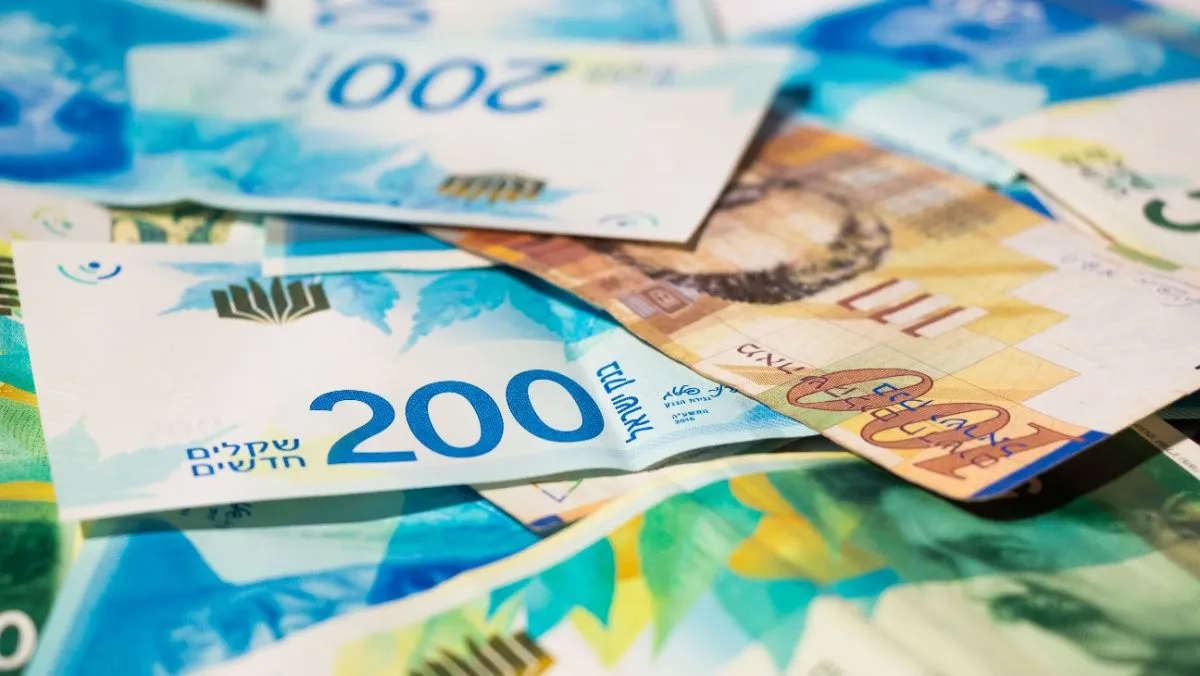
Monday Apr 15 2024 12:17

5 min

The Israeli shekel saw a recovery on Monday after a recent bout of selling, with investors optimistic that the conflict between Iran and Israel will not escalate further.
In what market players said was a “relief rally”, the shekel appreciated by 1.34% to 3.7196 per dollar on Monday. The shekel also mounted a similar recovery against the British pound, gaining 1.15% to trade at 4.6394 at 12:00 GMT on April 15.
Calm returned to global markets as traders anticipated that diplomatic efforts would prevent any further escalation following Iran's large-scale attack on Israel over the weekend. Iran declared that “the matter can be deemed concluded”, while U.S. President Joe Biden reportedly advised Israeli Prime Minister Benjamin Netanyahu against a retaliatory strike.
Henrik Gullberg, macro strategist at Coex Partners, a London-based derivatives trader, was cited by Bloomberg as to the tensions’ potential effect on the dollar-to-shekel pair:
“Markets are probably hoping Israel will take the ‘win’ insofar as them having defended themselves successfully”.
Gullberg added that any indication of a forceful Israeli response would be positive for the dollar — including against the shekel.
The shekel was notably one of the world’s best-performing currencies against the U.S. dollar last November, as it surged close to 8.5% vs. USD from its late-October low, erasing losses incurred during the outbreak of the Israel-Hamas war after the events of October 7th.
However, swap markets have adjusted their expectations, now forecasting fewer interest rate cuts by the Bank of Israel this year, with no additional easing anticipated in 2025.
Market participants now expect the central bank to maintain the key policy rate above 4% throughout the next year, from the current 4.5%.
Earlier in the month, traders had anticipated a key policy rate of around 3.3% by 2025.
In a note cited by Bloomberg earlier on Monday, Deutsche Bank strategists including Oliver Harvey wrote:
“The heightened probability of tail events stemming from recent developments is expected to reinforce the cautious stance of the central bank, prompting the central bank to refrain from premature action in light of the escalating geopolitical risks”.
The Bank of Israel played a key role in propping up the national currency throughout last year, intervening as the shekel declined approximately 6% in the weeks following the October 7th attack by Hamas. To defend the shekel, the central bank proved willing to shrink its reserves, which fell by $7.3 billion last month. Other efforts to boost liquidity included the provision of $15 billion through swap lines.

Concerns over budget dynamics, potential rating downgrades due to ongoing regional tensions, risks to financial asset prices, and the resulting uncertainty about the inflation outlook might require a tighter monetary policy, market analysts told Bloomberg on Monday.
On the equities side, Israel’s benchmark stock index surged by as much as 1.6%, while outcomes for Israeli dollar bonds varied, with the 2026 note achieving the largest gain on the Bloomberg EM Sovereign Total Return Index.
When considering shares, indices, forex (foreign exchange) and commodities for trading and price predictions, remember that trading CFDs involves a significant degree of risk and could result in capital loss.
Past performance is not indicative of any future results. This information is provided for informative purposes only and should not be construed to be investment advice.
